Are you eager to share your thoughts about your recent experience with our services? We believe that your feedback is invaluable in helping us improve and tailor our offerings to meet your needs better. Participating in our service satisfaction survey is a great way to voice your opinions and influence future enhancements. So, grab a cup of coffee, relax, and read on to discover how you can make a difference!

Clear and concise language
A service satisfaction survey provides valuable insights into customer experiences. Surveys typically include questions to assess responsiveness, product quality, staff professionalism, and overall satisfaction levels. Each question often utilizes a scale (1 to 5 or 1 to 10) for easy quantification of feedback. Additional open-ended questions may request comments about specific interactions or improvements. Anonymity is often emphasized to encourage honest responses. Data collected from surveys can lead to actionable improvements in service delivery, fostering customer loyalty and enhancing business reputation. When conducted regularly, surveys provide comparative insights over time, essential for tracking progress or identifying trends in customer sentiment.
Personalization and tone
Creating an effective service satisfaction survey template requires a thoughtful approach to personalization and tone. Begin with a warm greeting, acknowledging the customer's recent interaction. Use their name to establish a connection. Frame questions in a friendly, conversational manner, focusing on specific aspects of their experience, such as service quality, staff friendliness, and product satisfaction. Incorporate a mix of quantitative (ratings) and qualitative (open-ended) questions to gather comprehensive feedback. Thank them for their participation, emphasizing the importance of their insights in improving future services. Encourage further comments, ensuring the tone remains approachable and appreciative throughout the survey.
Purpose and value of feedback
Service satisfaction surveys play a critical role in assessing customer experiences and improving service quality. Organizations, such as restaurants, hotels, and retail stores, seek feedback to identify strengths and areas needing improvement. Accurate data collection through targeted questions allows teams to gauge overall satisfaction levels, measure variables such as wait times, staff friendliness, and product availability. The insights gained from surveying customers help businesses tailor services, enhance operational efficiency, and foster customer loyalty. Ultimately, constructive feedback demonstrates the organization's commitment to continuous improvement and aligns products and services with customer expectations.
Incentives for participation
Incentives for participation in service satisfaction surveys can significantly boost response rates and provide valuable insights. Offering rewards such as gift cards (e.g., $10 Starbucks or Amazon vouchers) can encourage customers to share their experiences. Entry into a draw for larger prizes, like a $500 travel voucher, can also motivate participation. Access to exclusive discounts, such as a 20% off next purchase, improves customer engagement and loyalty. Additionally, providing instant rewards, like free access to digital content or membership benefits, can enhance the appeal of participation. Ensuring privacy and confidentiality increases trust among participants, making them more likely to engage in future surveys.
Contact information for follow-up
Service satisfaction surveys collect valuable feedback from customers to improve service quality. Including contact information for follow-up enables businesses to address specific concerns directly. For example, a customer named Sarah Thompson from New York City provides her email address (sarah.thompson@email.com) and phone number (555-123-4567) to facilitate communication. Using her feedback on a recent dining experience at The Gourmet Bistro can help the restaurant enhance its customer service strategies. This may include improving wait times or addressing specific menu item issues. Gathering this information allows businesses to foster deeper relationships with clients, ultimately improving customer loyalty and satisfaction.

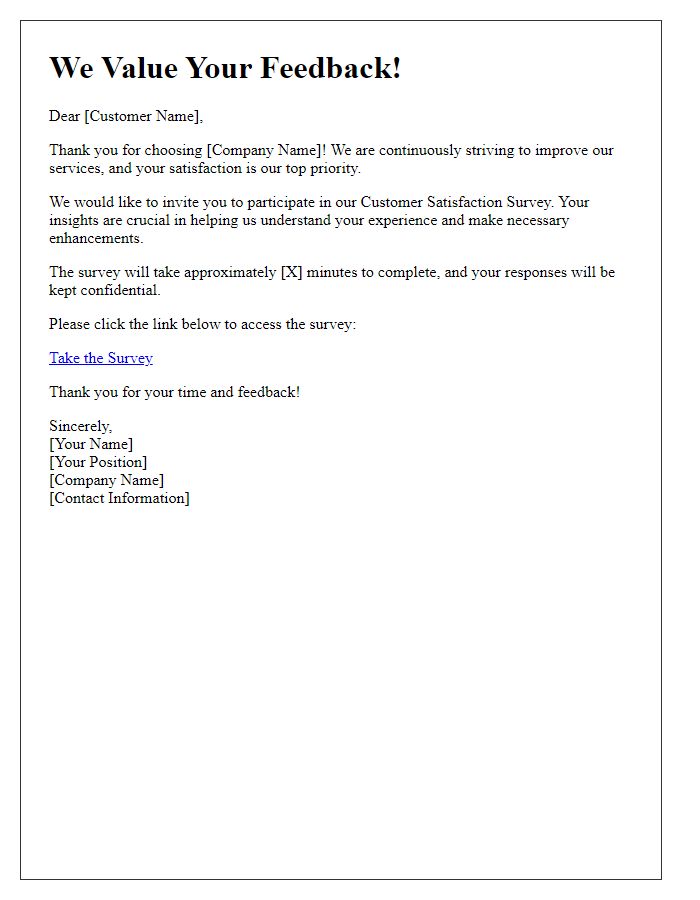
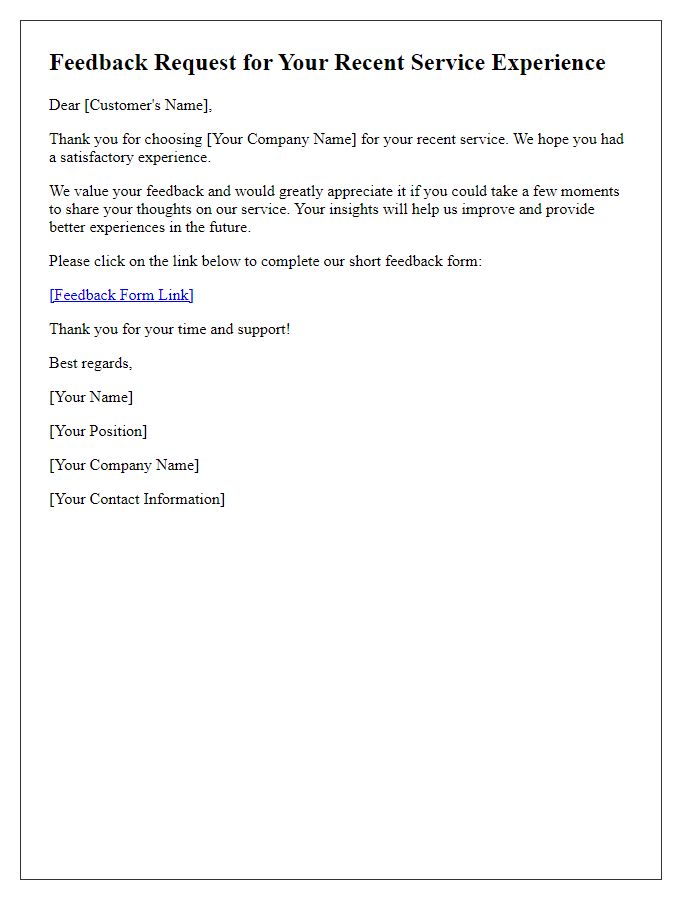
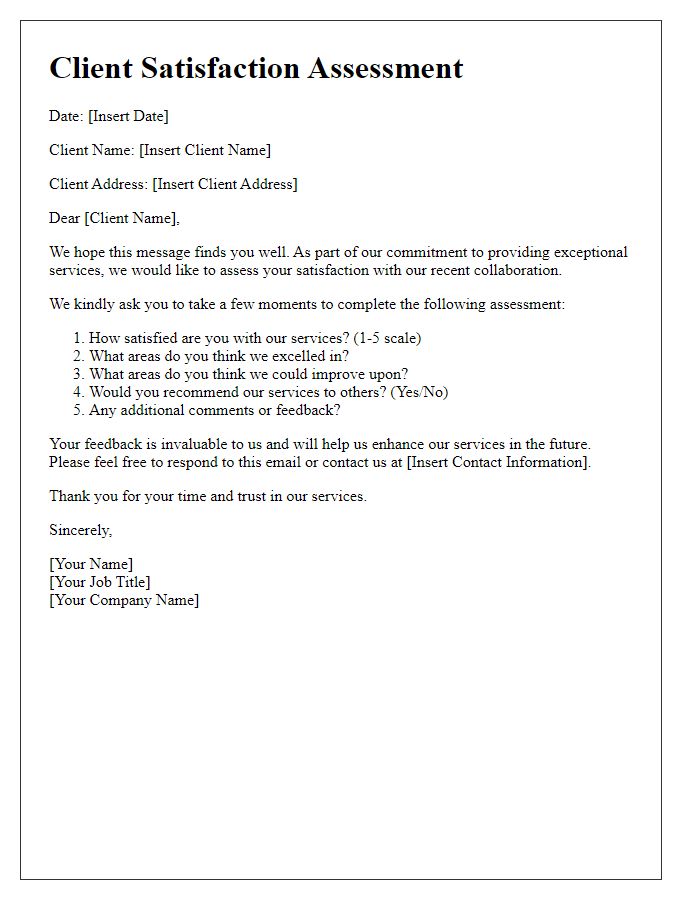

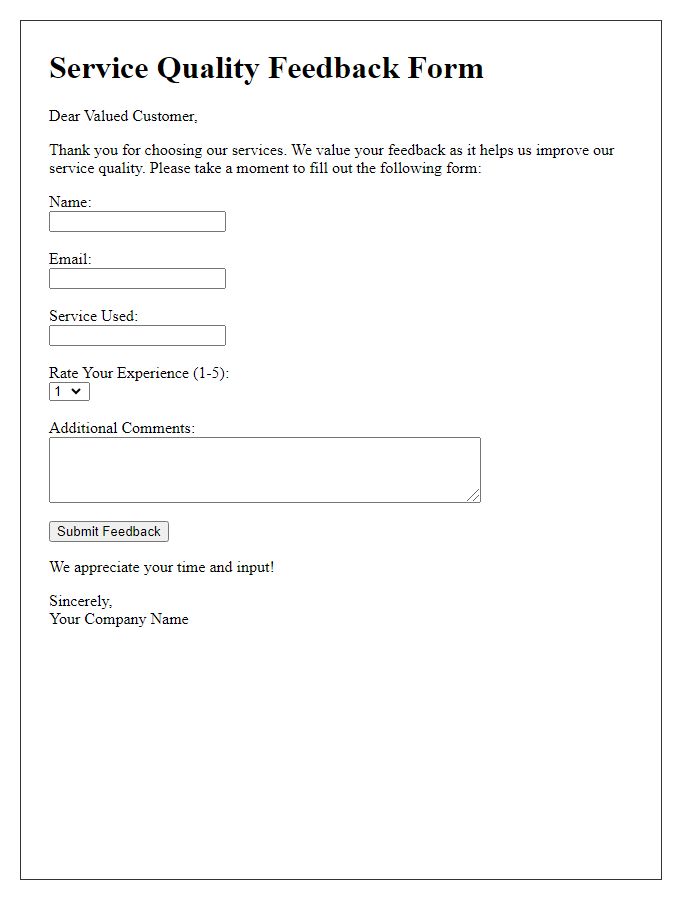
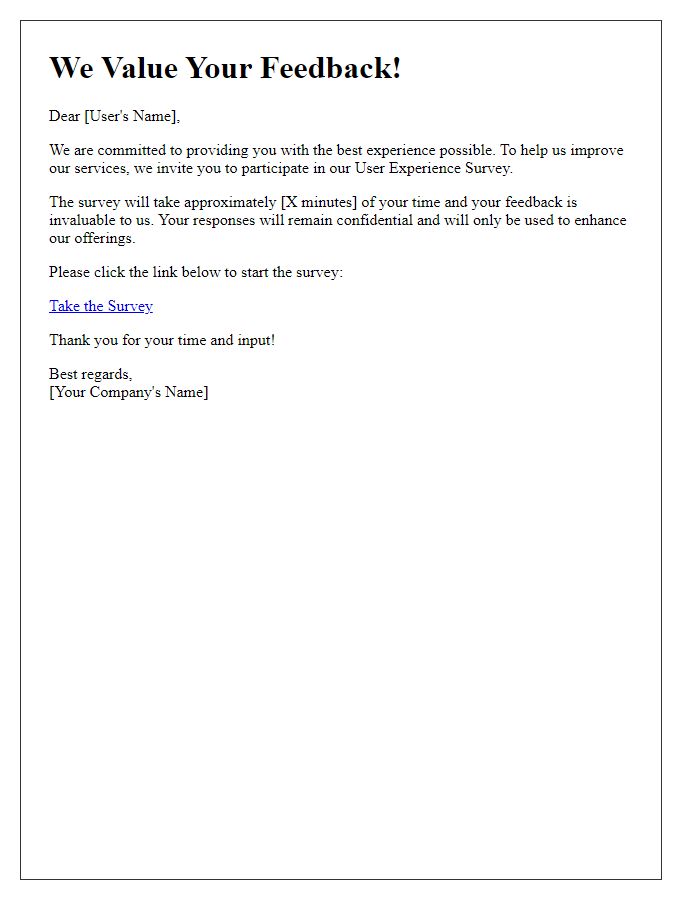
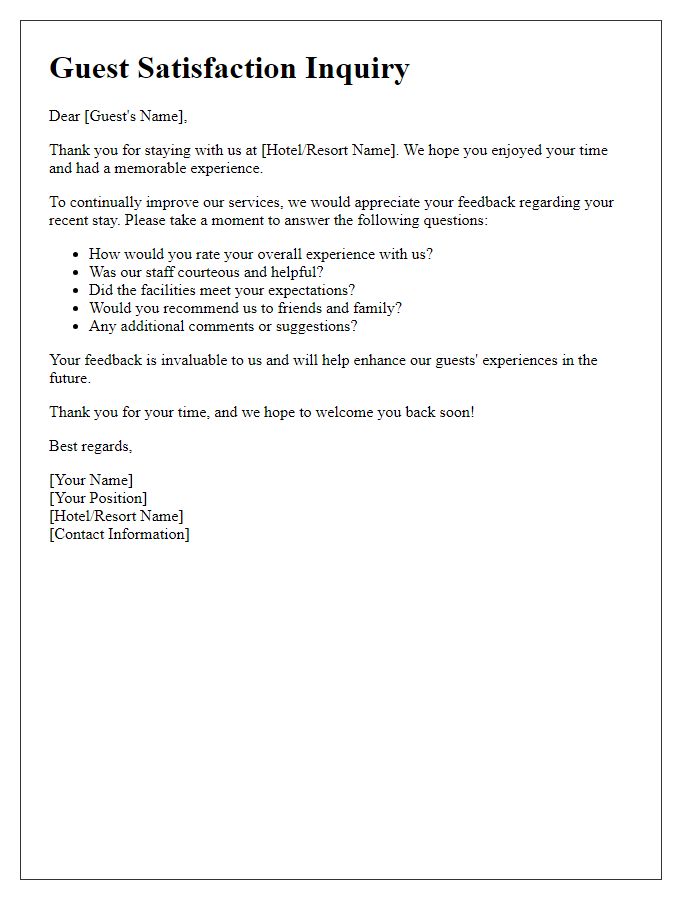
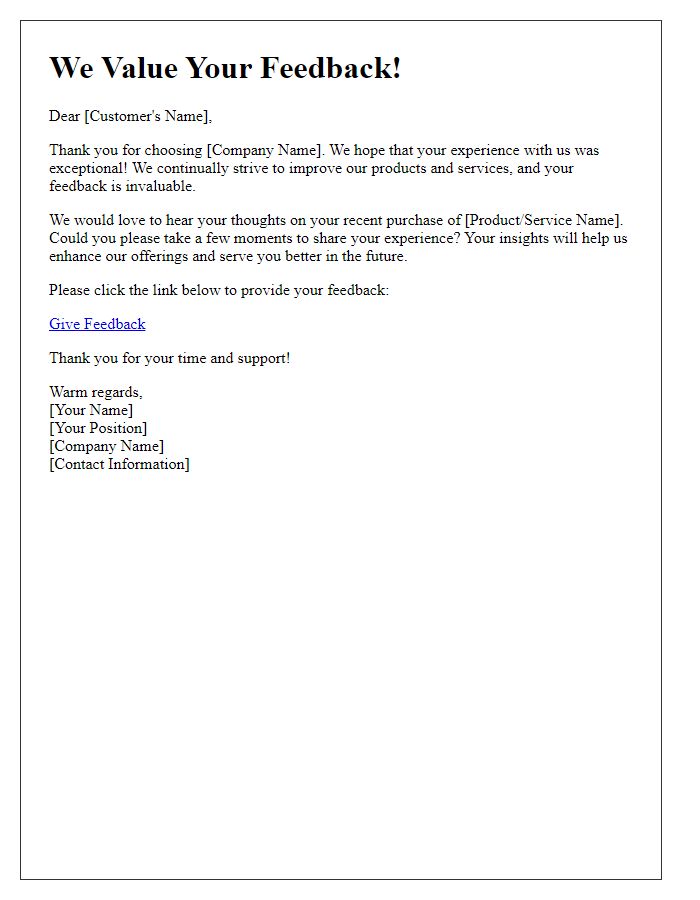
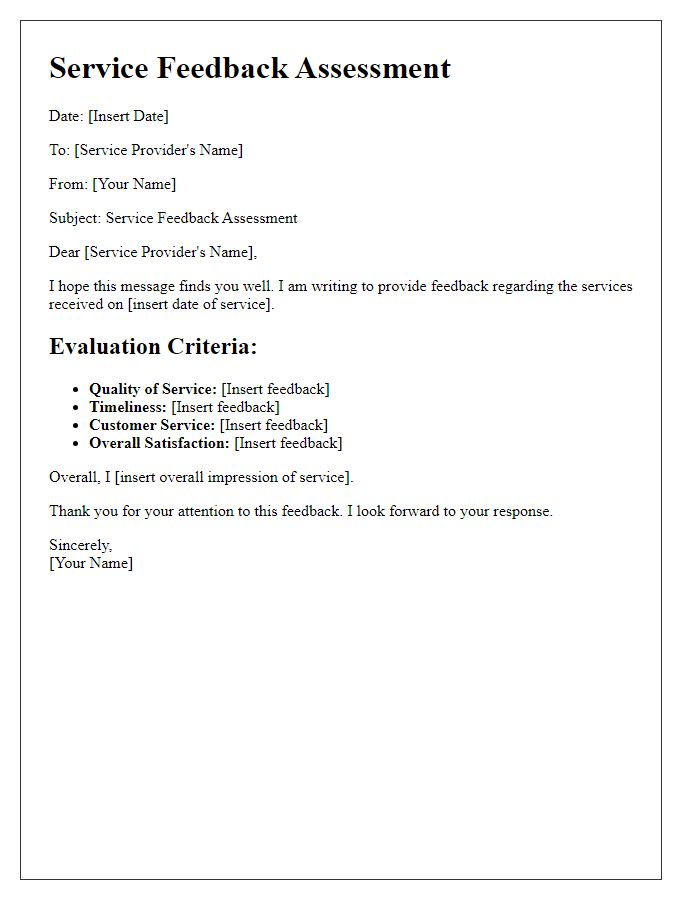
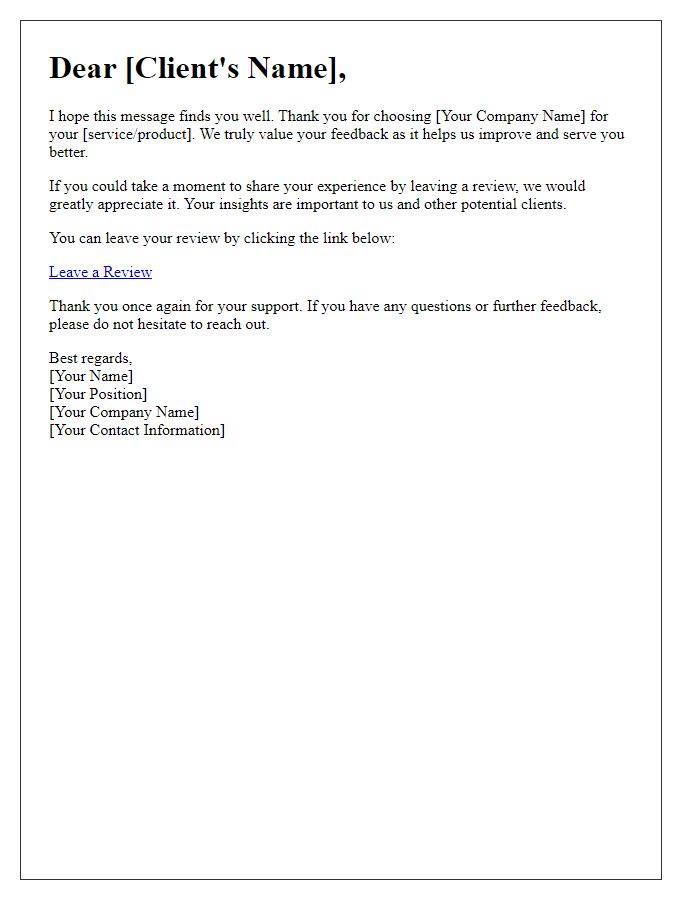


Comments